28+ Sample Private Event Contract
-
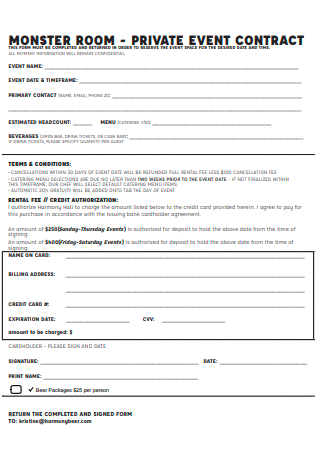
Private Event Contract Template
download now -
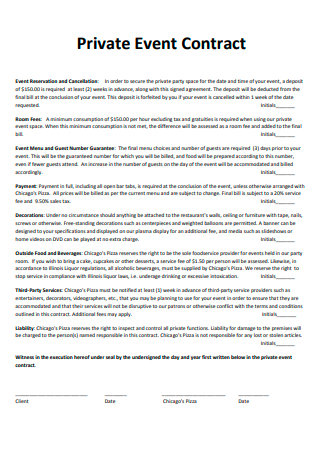
Basic Private Event Contract
download now -
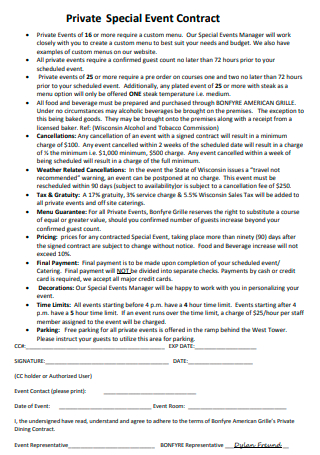
Private Special Event Contract
download now -
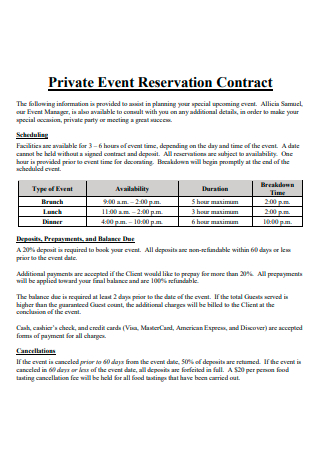
Private Event Reservation Contract
download now -
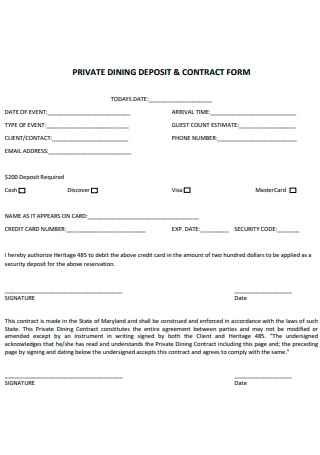
Private Event Dining Deposit and Contract Form
download now -
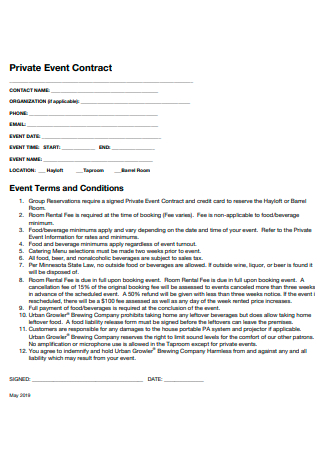
Private Event Contract Example
download now -
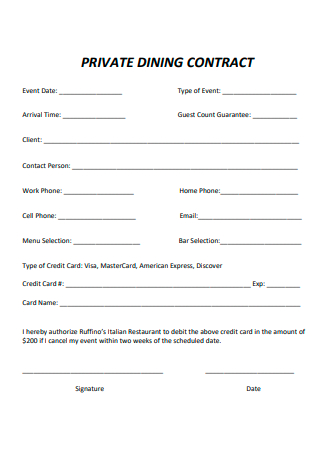
Private Event Dining Contract
download now -
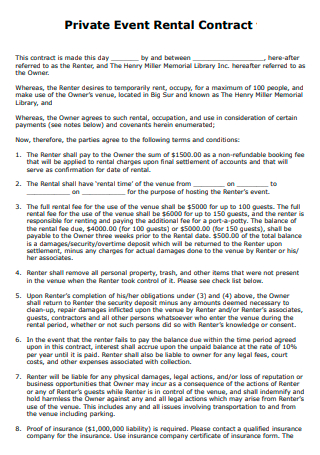
Private Event Rental Contract
download now -
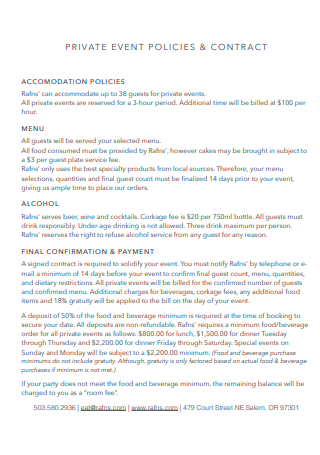
Private Event Policies and Contract
download now -
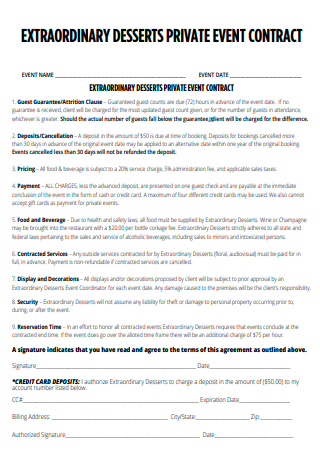
Extra-Ordinary Desserts Private Event Contract
download now -
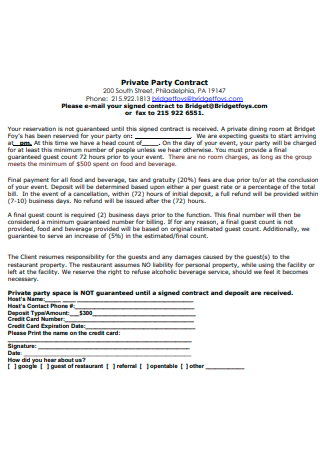
Private Event Party Contract
download now -
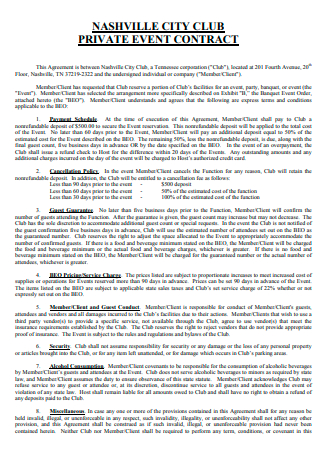
Club Private Event Contract
download now -
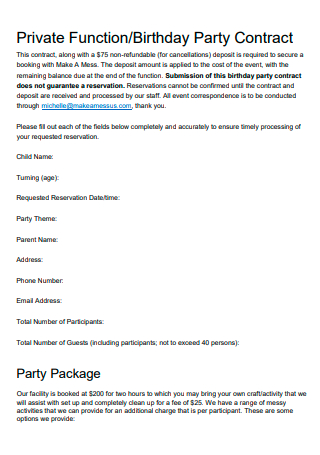
Private Birthday Party Event Contract
download now -
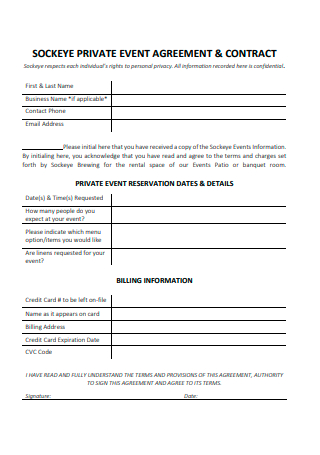
Private Event Agreement and Contract
download now -
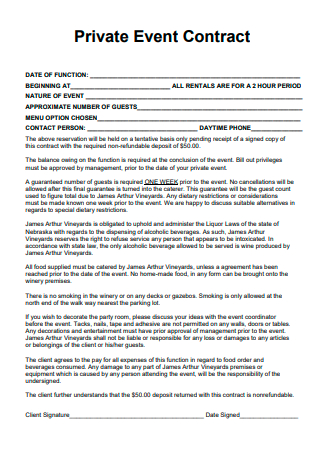
Printable Private Event Contract
download now -
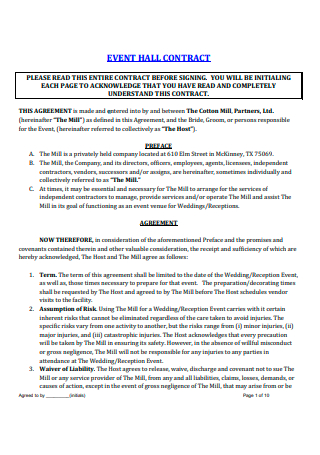
Private Event Hall Contract
download now -
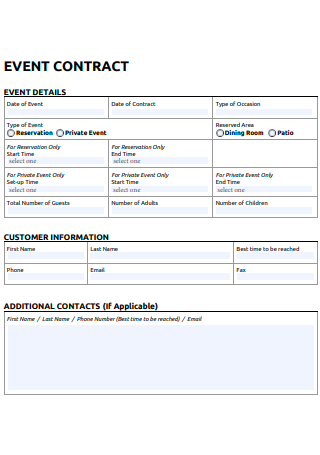
Private Event Contract Format
download now -
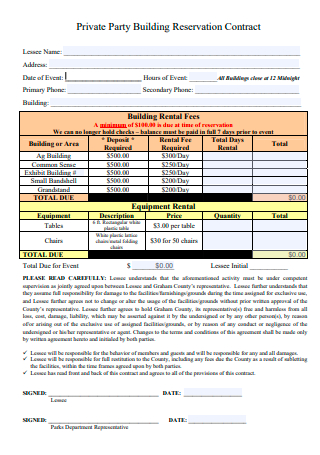
Private Event Party Building Reservation Contract
download now -
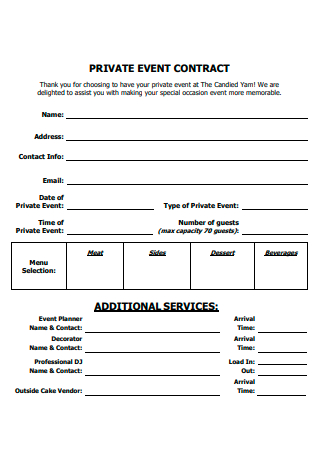
Sample Private Event Contract
download now -
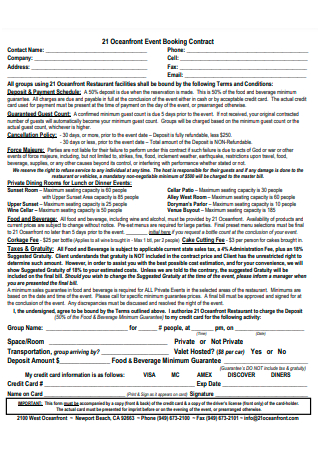
Private Event Booking Contract
download now -
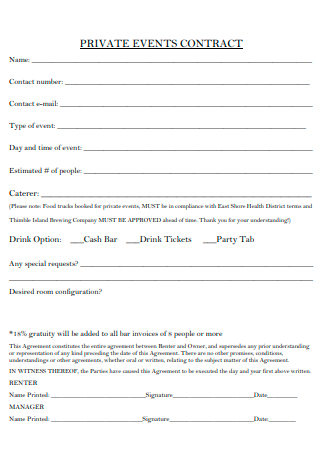
Simple Private Event Contract
download now -
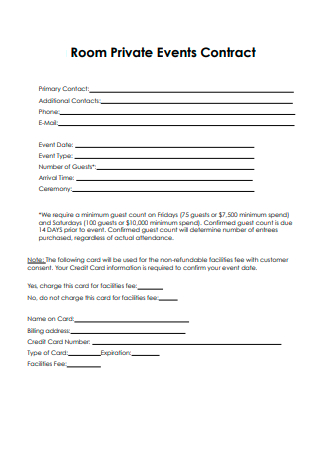
Room Private Events Contract
download now -
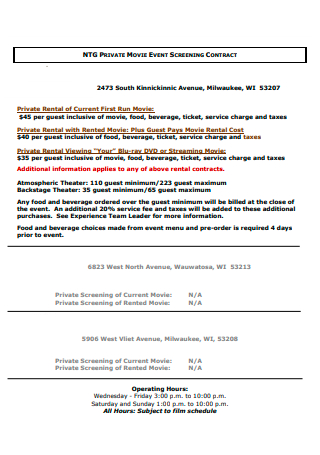
Private Movie Event Screening Contract
download now -
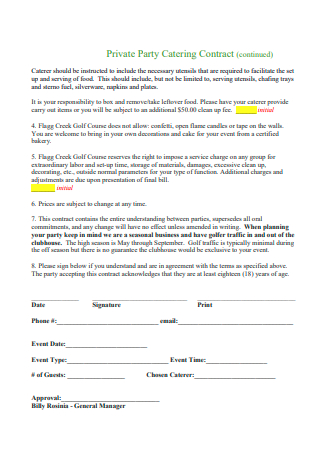
Private Event Party Catering Contract
download now -
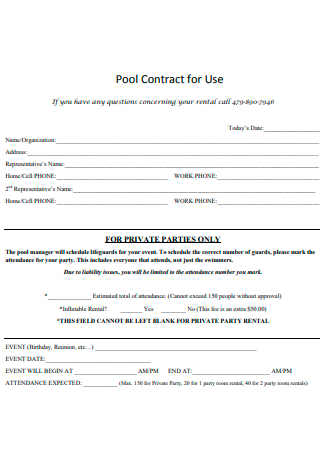
Private Event Pool Contract
download now -
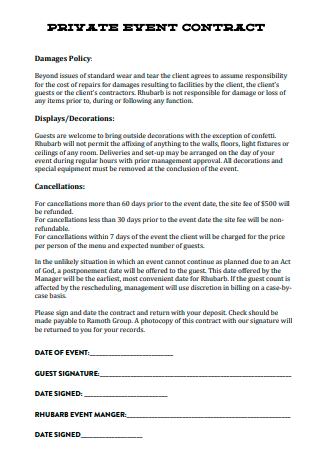
Private Event Contract in PDF
download now -

Private Wine Bar Event Contract
download now -
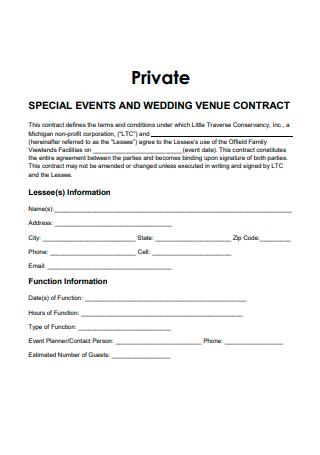
Private Special Event and Wedding Venue Contract
download now -
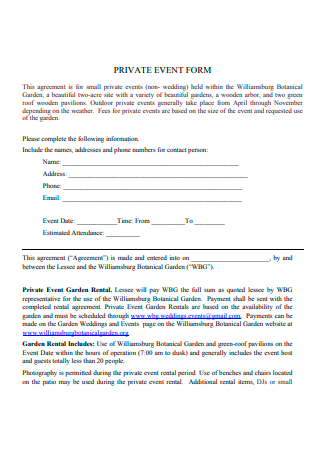
Private Event Contract Form
download now
FREE Private Event Contract s to Download
28+ Sample Private Event Contract
What Is a Private Event Contract?
Difference between Public Event from Private Event
Private Event Planning Dos and Don’ts
How to Write a Private Event Contract
Private Event Types
FAQs
What are the classifications of event types?
How important is an event contract in the catering business?
How does event planning work?
What Is a Private Event Contract?
Merriam Webster Dictionary defines an event as a prearranged event or activity, such as a social get-together. A contract comes into the picture as a means to safeguard all parties participating in a particular event or occasion, including the event planner, clients, vendors, and venue. Contracts assist to avoid misunderstandings and give solutions in the case that a previously agreed-upon detail is not carried out. No contract is done with ease so you would most likely be needing a private event contract template to know how to structure it. Additionally, there are steps if you keep on reading to guide you through the process of constructing your contract.
Difference between Public Event from Private Event
According to Occasion Knowledge, as the event manager, you may provide the option to hold a public and private event for your client. The occasion allows you to easily categorize them properly. A birthday party for children, a private gathering for adults, a business event, and so on are examples of private events. A private event is usually only open to those who have been invited or carefully selected by the client themselves. A public event is a lesson, workshop, or series of classes that anybody can attend. This type of event is open for the general public and community.
Private Event Planning Dos and Don’ts
Organizing and executing a successful event is time-consuming and downright filled with effort. It takes up most of your attention to get things in order and requires you to make sure nothing is left. A noticeable successful private event takes professional planning and great organization abilities, from selecting a superb event venue to collaborating with third-party providers or caterers in making sure the food that will be served is fitting for the guests. No one wants their event to be ruined. Fortunately, there are a few simple event planning dos and don’ts that you can follow to make your next event successful.
How to Write a Private Event Contract
How many times have you left a discussion thinking you and the other person understood each other only to discover afterward that you were misunderstood? When preparing an event, having a contract in place ensures that all parties are aware of the work being done as well as other parts of the event planning business. Although this article has prepared templates for private event contracts, you may still want to be knowledgeable about what to add in the contents section. So this guide will help you through the steps.
Step 1: List of services being provided
The contract should spell out exactly what services will be delivered and what those services would entail. Services that aren’t clearly described may be misinterpreted, resulting in unsatisfied expectations. Catering, on-site event workers, marketing, and audio and visual equipment are examples of provided services, but it’s also vital to indicate which services are not included. List these responsibilities in the contract so the client knows exactly what services you will and will not provide. To prevent yourself from doing service outside of your comfort zone, use wide wording in the contract. Include information on the suppliers you are dealing with and the services they offer.
Step 2: Add the Payment schedule
Include all payment information in the contract with the client or event planner. Make a rough estimate of the event’s budget to give the client a sense of what to expect. You can always renegotiate the budget later, so don’t worry about being too thorough with your estimations. In the Contract, specify the due date for the initial deposit and state that no work will commence until the money is received. Indicate when the full payment must be paid in order for services to be delivered. Your payment plan, including any additional fees and taxes, should best meet your company and cash flow needs.
Step 3: Define Cancellation terms
If the event host has to cancel or back out, including a cancellation provision in your contract guarantees you get compensated. Any costs or deposits made up to the cancellation should be nonrefundable, according to cancellation restrictions. These conditions secure your income and reduce the possibility of a client canceling, which is especially important when there is a lot of money at stake. These clauses should specify what constitutes a legitimate event cancellation and how long the customer has to cancel before the entire cost is charged.
Step 4: Add a Termination clause
A termination clause, often known as a force majeure clause, gives legal protection to a planner if services are terminated for circumstances beyond their control. Hurricanes, tornadoes, and floods are examples of events beyond one’s control. Under some severe circumstances, the planner has the authority to cancel all obligations and services. The clause must specify which situations are covered, who has the authorization to discontinue services, and what occurs if services are canceled.
Step 5: State the Indemnification clause
This provision shields the event planner from legal prosecution if the customer fails to meet their obligations. This provision prevents a customer from holding you or your planning business liable for damages, injuries, or losses caused by their activities.
Step 6: Include the Cancelation-by-you clause
In rare situations, the event planner may desire to cancel the contract in the middle of it. This provision should include instances when you can opt-out, such as unreasonable last-minute requests or a staffing shortage. If you cancel, make accommodations for the client, such as locating a third-party planner in place of your company to handle the event or refunding deposits if the expenses have not been fully spent. Be apparent with the reason as to why you are canceling to plan the event in the first place in order to avoid clients misunderstanding the change of the agreement.
Private Event Types
Since there are no two events alike, the variety and difference will be unique to each client that has approached you and enlisted your aid to execute their desired private event. It is beneficial for you to know and be aware of the different types of private events. Although, if you are already experienced you would already know it but if you wish to review, keep reading the curated list below. As well as view the sample event contract provided in this article.
FAQs
What are the classifications of event types?
Corporate, private, and charitable events are the three types of events. Corporate events are geared at businesses and clients, whereas private parties are more leisurely, and charity events are philanthropic in nature. The finest corporate events are those that have specific, measurable objectives. Given the expense and quantity of planning that goes into each one, this makes sense. This article is helpful if you are new to corporate event planning or simply seeking more ideas to help you in writing a contract for private events your company is planning to hold.
How important is an event contract in the catering business?
It is in your best interests to have a catering contract. It should include the client’s expectations for food service, delivery dates, and menu, as well as your costs in terms of ingredients and other payment obligations. A proper contract protects both parties in the event that something goes wrong, and it is an essential component of running a catering business and being an event organizer.
How does event planning work?
An event planner organizes a gathering, keeps track of all the moving components, and ensures that everyone has a nice time. They are also known as convention and meeting planners, and they are in charge of selecting sites, hiring caterers, entertainment, and other suppliers to ensure that these events go successfully.
An event contract agreement is necessary to make sure you and the client have signed and thoroughly understood the clauses involved with working together. From the very start of the event up until the end. Make sure to have viewed available samples and choose an Event Planning contract template that you can freely change and edit to your preferences. With that being said, you are more than ready to start writing your private event contract.
